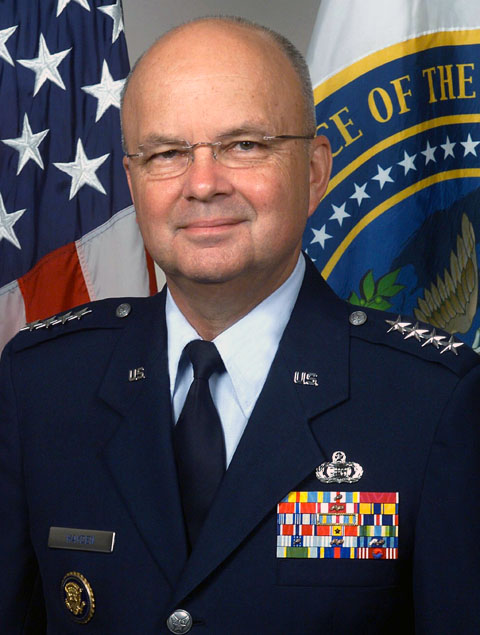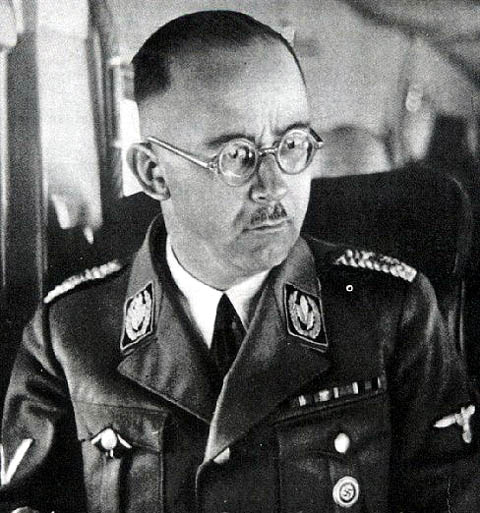SOURCE: JUAN WILSON juanwilson@mac.com
Naming General Hayden CIA head is dangerous
11
May 2006 - 4:30pm

Air Force General Michael Hayden
former head of NSA, now named as Director of CIA
by Juan Wilson on 11 May 2006 For six years, up unto a year ago, General Michael Hayden was the Director of the National Security Agency. The NSA is the primary eavesdropping, and code-busting agency in America. It's operations have been as closely held a secret as the special operations of the spooks in the CIA. Hayden was the man in charge of the NSA during George Bush's first term in office and was responsible for providing some critically bad information and advice to Bush on the WMDs in Iraq, the nuclear capability of Saddam Hussein and perhaps most importantly, the operations of the NSA to spy on Americans in conjunction with the major phone companies. With the sheepish compliance of ATT, Bell South and Verizon, these particular NSA activities have collected telephone call records on tens of millions of Americans. These wiretaps have been shown to be blatantly illegal. It may be that Hayden has been named head of CIA to help solidify the positions of those in power who have made the terrible decisions that have brought us into the quagmire of Iraqnam. What better way to keep the lid down on the crapper than to name the idiot-in-charge chief-secret-keeper. When the criminal hearings on the NSA wiretaps begin I imagine everything will have been shredded and re shredded. This is not the only problem naming an active military general head of intelligence at a time when the Defense Department wants more control over the flow of information. We can be sure that Defense Secretary Rumsfeld will need his ass covered when it all hits the fan. Another aspect of Hayden's appointment is the smell of fascism... and it is not just me. Jack Cafferty on CNN said today that he hopes nothing happens to Senator Arlen Spector, because he has promised to hold hearings on the use of the phone companies by the NSA and maybe the only one standing between us and a dictatorship in America. Click on image for Quicktime video. If you don't remember what a dictator looks like check out this 1945 picture of Heinrich Himmler, the Reichsführer of the Schultzstaffel (commander of the SS - defense squadron). The SS was in effect an elite political party within the German military. Do these guys always look so nerdy?
|
The NSA's Massive Database & The Fight to Stop It by Shayana Kadidal on 11 May 2006 in the HuffingtonPost.com USA
Today is reporting that top telephone companies are helping
the NSA build a "massive database of Americans' phone
calls," with a goal of tracking "every call ever
made" in the U.S. And
that's not the only domestic spying news today. Seventy
two members of Congress just filed papers in support of
the Center for Constitutional Rights' challenge to the domestic
spying program (CCR v. Bush). I have been working on that
case for months, and this action is not only a sign of growing
support, it also rebuts the administration's claim that
somehow Congress declared open season for surveillance when
it authorized the war in Afghanistan. The brief reiterates
that Congress made all warrantless spying illegal and the
NSA is currently breaking the law. Then it runs through
the legislative history of the Foreign Intelligence Surveillance
Act of 1978 and the Authorization for Use of Military Force
in Afghanistan, proving that Congress never authorized the
warrantless spying program. Like our lawsuit, the U.S. Representatives'
brief asks the court halt the illegal spying program immediately. |
General
Formally Named to Lead CIA |

